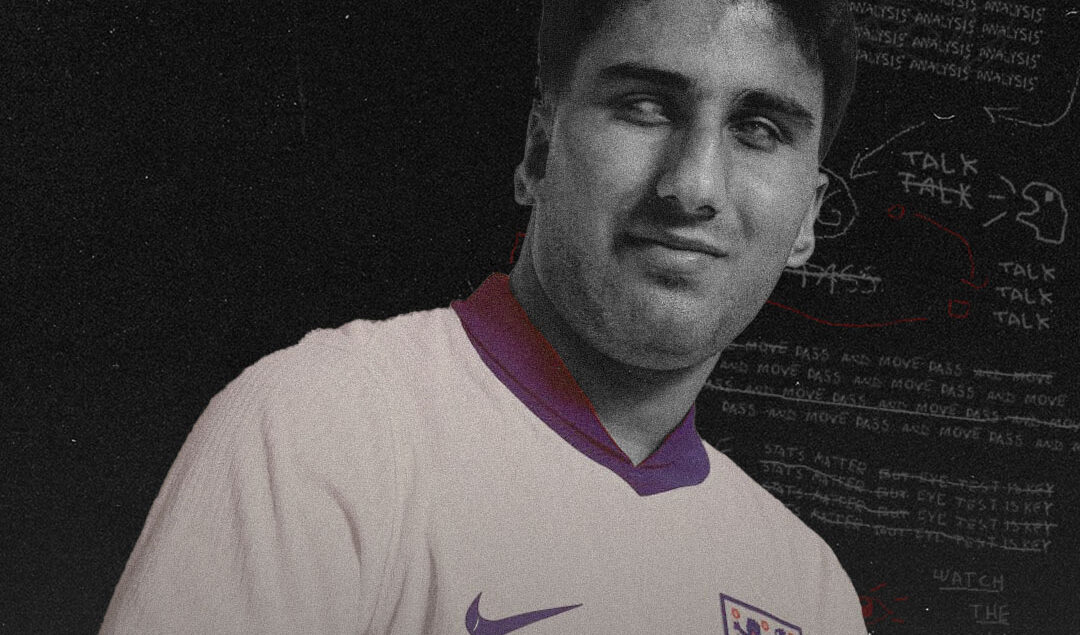Azeem Amir: The Man With No Limits
What do you think when you hear about Rochdale? For some, they think of a small little town outside of Manchester. Others from the southern parts of England may not have even heard of it all. But for Azeem Amir, a third-generation British-Pakistani blind footballer, Rochdale is the representation of his life. It represents where he first began to spread his wings as a blind footballer, it’s where his family and friends reside and it’s a place, he still calls home.
It is no surprise that we met at Rochdale’s Chaiwala. Chaiwala is a franchise which specialises in “Chai” aka tea. Tea has long been Pakistan’s best friend and has served as the hotbed of social interaction in South Asia for over 5000 years. So, it made sense that under some brew, we spoke about family, friends, football, faith and Azeem’s “disability”, or sixth sense as he loves to call it.
Amir was born with no eyesight in his right eye and in his left eye he has light perception. So, he can see light shapes and shadows and that’s it. But he does not refer to this as a disability and in a Ted Talk he delivered in 2019, he called it a sixth sense.
“Just because you can’t see, doesn’t mean you can’t do. It is not just one sense but a load of different ones. Intuition, perception, visualisation, reading a situation, thinking outside the box and solution finding all in one.”
“I feel more blessed that people can’t walk, talk or feed themselves. When I see people like that, I come home and think about what I can complain about. I work with people whose dreams it is to lift a spoon to mouth and that is (like) climbing a mountain. For me, it is if someone can read a menu to me, and tell me to get up these steps and I don’t walk into something and that’s nothing (compared to others).”
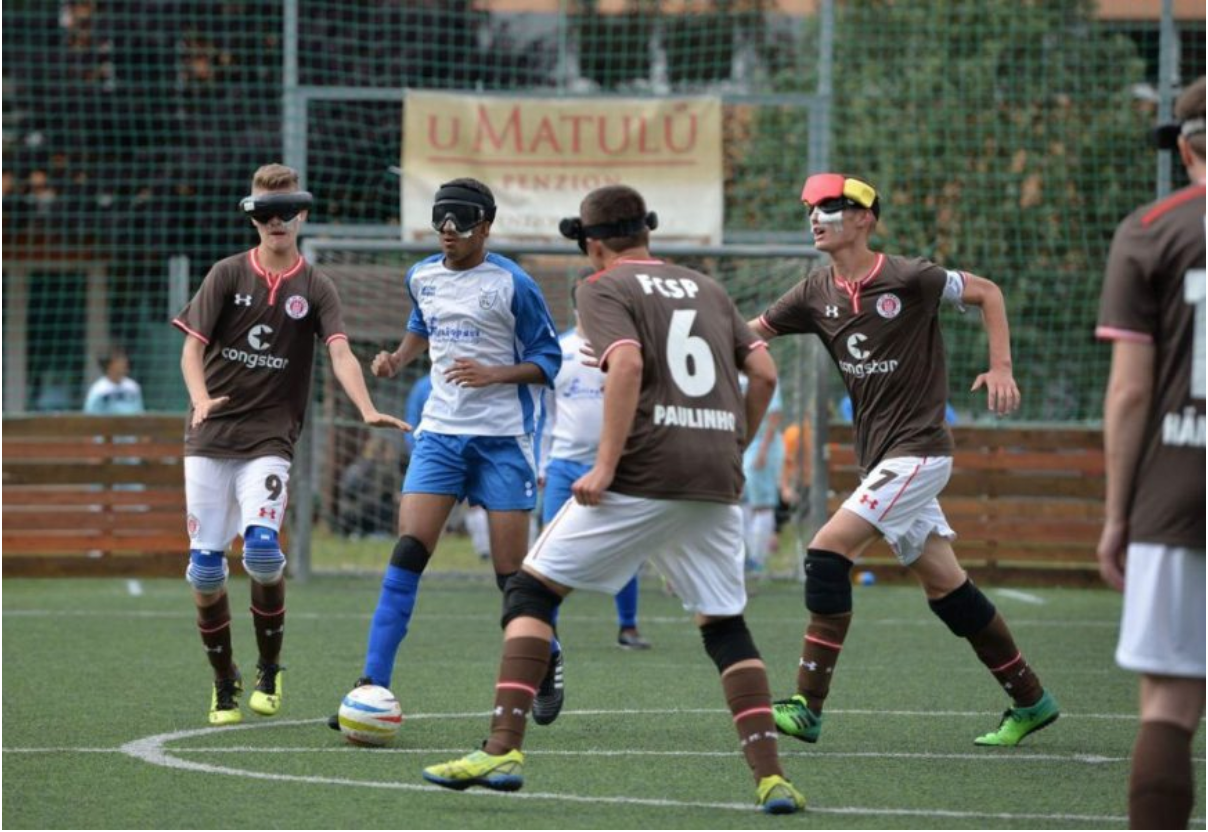
When speaking to Azeem, his excitement when talking about blind football stands out more than anything. Within the sport, everyone is blindfolded bar the goalkeeper who is fully sighted. The ball rattles to make people aware of the position of the ball. Watching it has you in awe as to how people can pull off the most outrageous skills and goals by just hearing where the ball is and to Amir, it is what changed his life.
“Blind football is very tough, and you must train a lot to perfect the craft. In my opinion, it is the toughest sport in the world. There is no one there to hold your hand and you must think on the spot. I have obtained 20 odd caps for England, but there is still so much more I can give to the game. Sport is all about giving back and sports can change people’s lives. I’m always thinking about how I can use my platform to change how people think about disability and disabled people in society”.
Perspective is a powerful tool. Through harnessing it, Amir has become Rochdale’s most accomplished athlete. It has taken him from a little town outside of Manchester to Argentina, whilst playing for England. But his route into professional football was not quite simple.
“I have always loved sport, but I came into the sport quite late as I scouted at 17. I never thought I would have a career in blind football, Paralympic sport and disability sport. It was always a big thing to get an education. I have first-class honours in sports management and then got a masters in digital business from Salford University. But a degree is the norm, and I don’t want to conform to norms”.
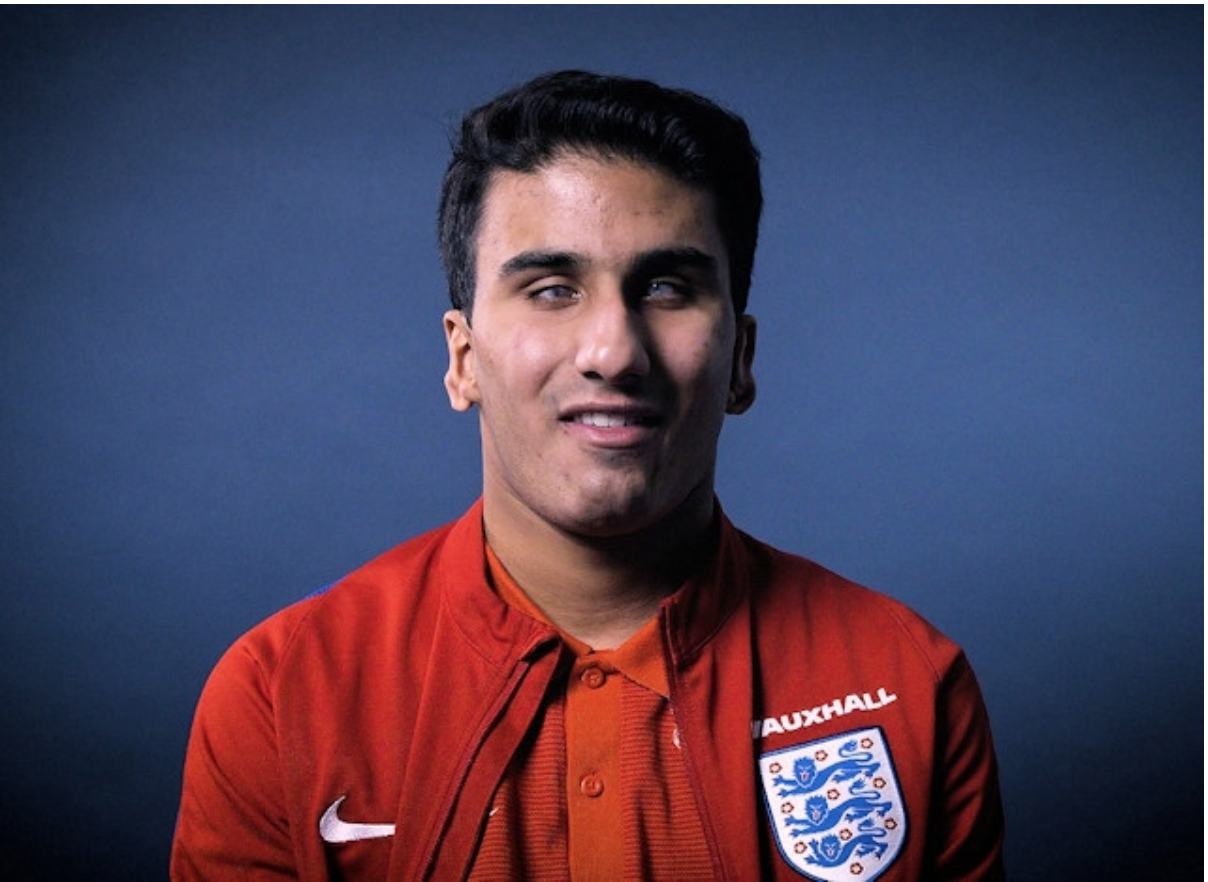
He does not conform to norms but if there is one stereotype he follows, it is having his own business. The business is called “Learn with ESS”. The ESS stands for education sport and speaking. “I thought about how we can help people to understand disability practically. Not just a YouTube video but in a fun way and leaving them with a life-lasting perspective. We use education, sport and speaking to help people better understand life with a disability.”
“We create classroom-based programs to teach braille, and sign language, create a sport program where they wear a blindfold, earmuffs or wheelchair, tie it in sport and activities. We bring in a role model to speak to them. The idea started 3 years ago and now we work with 200 schools over the country. We work with Nike, Dior, Santander and FIFA. We were invited to the 2022 World Cup to deliver workshops there, most clubs in the Premier League and the likes of Jadon Sancho, Jude Bellingham and Steven Gerrard”.
It is not the only time he has brushed shoulders with England internationals. He was chosen to model the latest England kit before the latest Euros. He has become the poster boy for blind football, but it is something which he relishes. “I had the privilege of representing blind football for the shoot. Having the opportunity to be with Phil Foden and Bukayo Saka was great but I’m like what’s the next thing I’m going to do? When you’re in a room with big players or people of stature you strip it down and they’re just normal people.”
“I have been very lucky to work with Nike as they are a community partner with Nike and that relationship is amazing to work with as they are one of the world’s biggest brands. My friends are walking into Sports Direct and sending me photos of me being on a billboard. I’m getting texts that I am on the Sky Sports app or being on TV and every day is a blessing”.
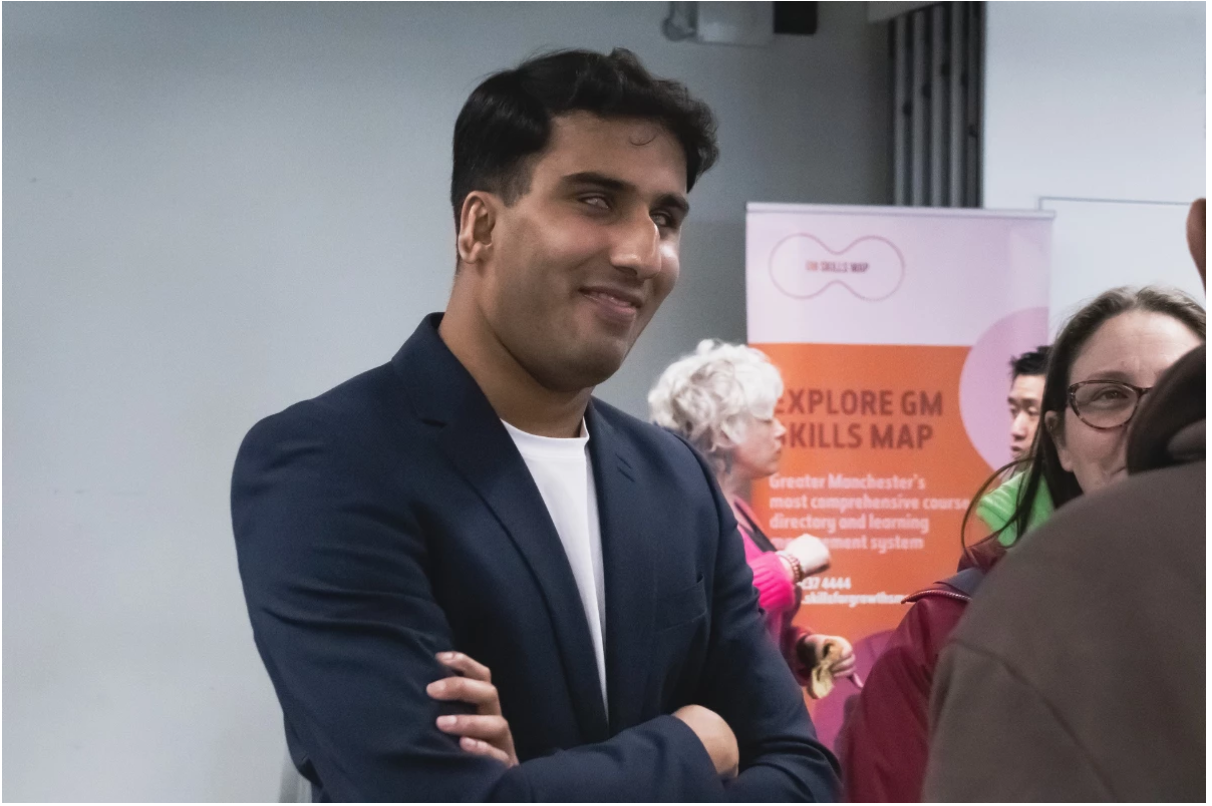
For one so young at 25, Amir is strikingly aware of his mortality. This self-awareness brings up one word throughout our conversation. Legacy. For most athletes, it is rooted in sporting prowess but for Amir, the word is associated with his grandfather. The heartbeat of his family.
“My family settled in Rochdale in the 60s. My grandfather moved here, and he passed away two years ago. As a man, he was an example of what you should be. Sitting in a room full of 30 grandkids and that was his legacy. He instilled in us working hard, being respectful, remembering God. I want to leave a legacy as much as my grandad, very proud of him, I will never forget him.”
There are many stigmas about the South Asian community. But one thing which is as strong as stone is family. It is the lifeblood of our communities and for someone like Amir, who has seen the world, and brushed shoulders with superstars it gives him a sense of normality and inspiration.
“In my family, I do not get treated differently to other grandchildren. Absolutely zero difference no special treatment. My mum and dad are super supportive and have given me every opportunity. I have my drive to do everything so it goes hand in hand.
“Growing up I never had experiences of family holidays it wasn’t a thing. I come from a very working-class family; my dad says going to the chippy was a treat. My grandad was a market trader and I have seen my mum and dad work hard. The life I live at 25, it’s crazy. Going on holiday with my family and saying that is incredible and it makes me hungrier to carry on doing it and is part of the motivation to continue”.
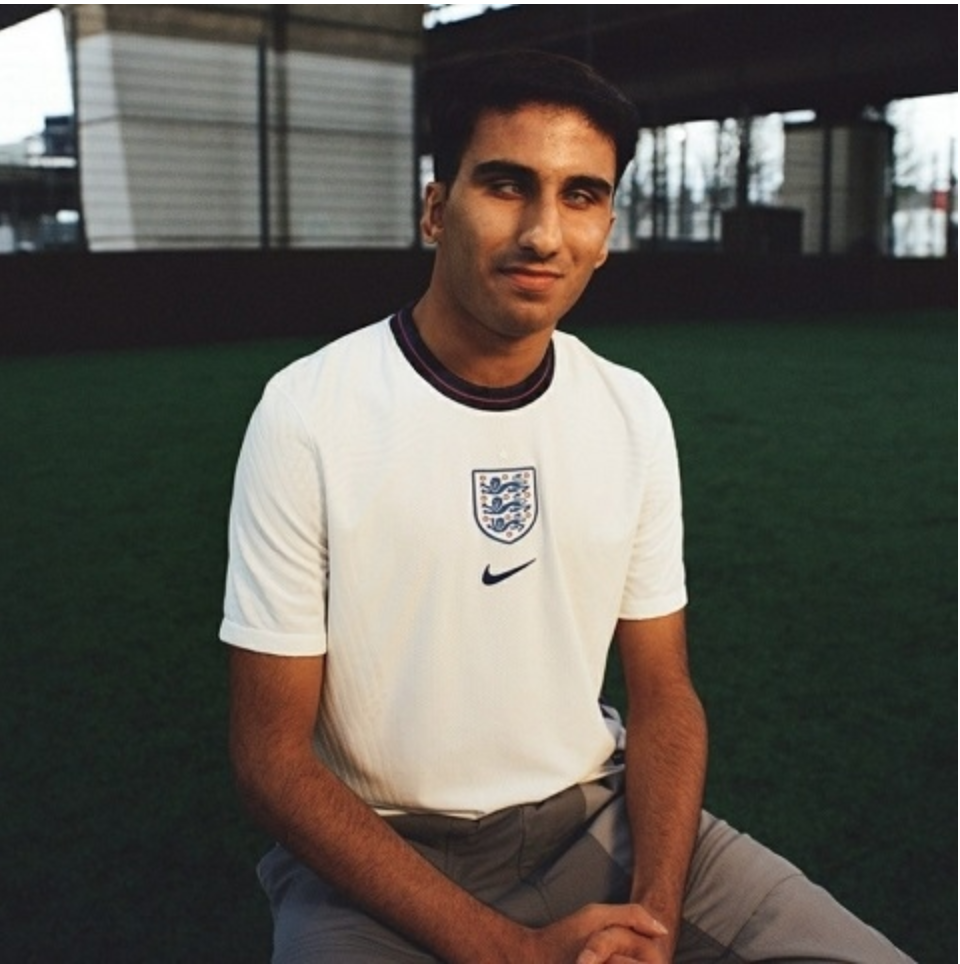
As a player who has described himself as the middleman. The runner in the team and the person who knots everything together. This playing style is indicative of how he lives his life. He is always running and looking ahead, stopping for no one till he hits his goals.
For someone in his own words who has lived 35 years in 25, he is always looking forward. Unfortunately for him, team GB could not make the Olympics this year, but they have an eye on Los Angeles 2028. With Amir in the team, the man who’s already achieved so much, you would not put it past them to do so.
With Los Angeles as a goal in 2028, his business doing well and inspiring his family, he has lived life to its fullest. His disability has not defined him and like he said “I have a better quality of life than 99% of people who can see. I play football and think I’m tired but I’m doing something I enjoy and I’m getting paid for it. I am getting paid to do a hobby and I’m luckier than 99% of people.”
By: Abu Yasin / @abuy2j
Featured Image: @GabFoligno / The FA
